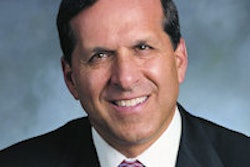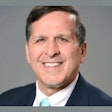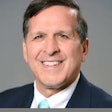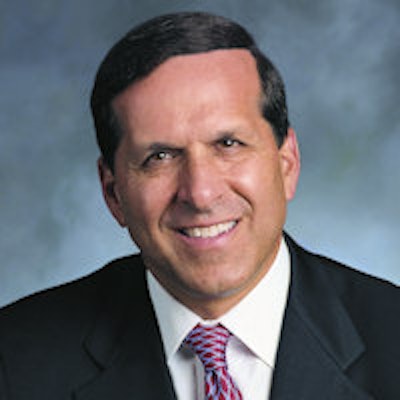
In a new series on DrBicuspid.com, Roger P. Levin, DDS, addresses a topic of interest within the practice and management of dentistry. In this month's column, he is asked about leadership in a practice and how practitioners can become better leaders.
You can visit the Levin Group Resource Center at www.levingroup.com, a free online resource, for tips, videos, and other valuable information.
DrBicuspid.com: What does leadership mean in a practice environment? Can leadership skills be improved?
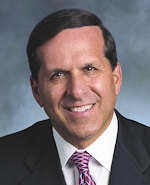 Roger P. Levin, DDS.
Roger P. Levin, DDS.Dr. Levin: Leadership isn't something that's handed down to you. And it's definitely not genetic. It's a skill that can -- and should --be learned.
Admittedly, improving leadership skills seems difficult when there are already so many demands on your time. After all, you have to keep up with the latest materials and technologies, deal with patients, manage the practice and the team, oversee finances, and monitor scheduling. Excellent leadership skills will make these aspects of being the practice's CEO much easier to accomplish.
In your experience, what are the traits of successful dental leaders?
At the Levin Group, we've worked with more than 23,500 dentists and specialists over the last 30 years, and these are the traits of leadership:
- Leaders motivate others.
- Leaders display emotional consistency.
- Leaders communicate effectively.
- Leaders celebrate accomplishments.
- Leaders work through others.
- Leaders embrace change.
What do you mean by motivation?
Obviously, good leaders should motivate and inspire their team. It starts with being an excellent role model. Dentists should wear their passion for dentistry on their sleeve for everyone on the team to see. Show them that this isn't just a job. Let them see that what you do is help people and that this is the guiding principle of the office.
Passion is contagious. We've never encountered a committed, passionate dentist who didn't have a team displaying the exact same qualities. Use your position as the practice's CEO to inspire team dedication.
What about during stressful times, whether that's during patient care or financially?
Team members look to leaders for guidance, calmness, and strength -- especially during stressful moments. They will follow a leader if they believe that individual knows where he or she is going, and this can only occur if the leader displays certain levels of strength and confidence.
For team members, it's very demoralizing to see dentists lose their tempers, display signs of depression, or have significant mood swings. Successful dentists continuously display the highest professional demeanor at all times.
“As business management guru Peter F. Drucker once said, ‘Management is doing things right; leadership is doing the right things.’ ”
Which is communication?
Yes, leaders communicate effectively.
Successful leadership depends on clear communication with team members. Structured formats, such as morning and staff meetings, reinforce the practice vision and goals, educate team members about new services, and allow for feedback on overcoming challenges.
However, important communication should not be limited to meetings. Throughout the day, you have opportunities to coach team members, respond to questions and concerns, and motivate the team. You should provide positive feedback to team members on a daily basis to validate excellent performance and encourage improvement when they underperform.
What do you mean by celebrating accomplishments?
It's easy to identify when the team does something wrong and show your displeasure. But it's a big mistake to say nothing when they do something well. Team morale depends on everyone feeling that they are valued and appreciated when they're doing a good job.
Reward successes with praise or special gifts. Dentists should share the practice's triumphs by holding employee dinners or fun events. Convey a sense that practice growth is a team victory that they've all accomplished together.
How should dentists spend their practice time?
Dentists should focus 98% of their daily time and energy on patient care, while everything else is delegated to team members. Many dentists are involved in certain activities simply because they've always done them or because they haven't considered letting others take over these tasks.
As an effective leader, you should delegate responsibilities to team members trusted to complete them -- without your continual involvement. Micromanaging will only exhaust everyone's mental energy. A well-trained team can make the job as leader far easier.
If a dentist is running a successful practice, why should they embrace change?
Leaders accept the fact of change and are always questioning how to do things better and exploring new directions. Through the pursuit of knowledge, they're able to bring new information to the team that will lead to positive changes in the practice.
Dentists need to be willing to change -- and change often. In the new dental economy, a practice that's not changing, adding to its services, and developing team members will find itself in decline.
As business management guru Peter F. Drucker once said, "Management is doing things right; leadership is doing the right things." Adopting the above qualities will help you become a better leader than you are today.
Roger P. Levin, DDS, is the chairman and CEO of practice management consulting firm Levin Group.
The comments and observations expressed herein do not necessarily reflect the opinions of DrBicuspid.com, nor should they be construed as an endorsement or admonishment of any particular idea, vendor, or organization.




